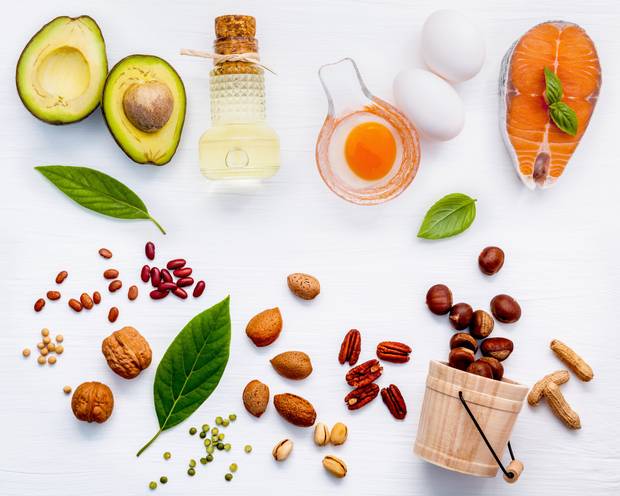
Ireland has one of the highest rates of mental health problems in Europe, ranking joint third (along with France) out of the 36 countries surveyed in the annual Health at a Glance report. The last few years have seen a big increase in both awareness and support for people experiencing mental illness – however, one area that seems to be overlooked is diet, according to performance nutritionist Shane O’Rourke

Nutrition is fuel for the body and that doesn’t just mean for muscles and bones, it also fuels the brain. In other words, what we put in our body not only effects our energy and our output but also how we feel. Many mental health conditions are accompanied with negative attitudes to food – for example, loss of appetite or binging on sugary snacks.
It has also been noted that various worrying food patterns that occur during depression also precede depression. These may include poor appetite, skipping meals, and an overwhelming desire for sweet foods.
There are multiple studies showing that the most common nutritional deficiencies seen in patients with mental health disorders are of omega-3 fatty acids, B vitamins, minerals, and amino acids. Also, their consumption of carbohydrates in the form of fast-acting sugars is either very low, or excessive.
Here are some tips on how to up your intake of these brain-healthy foods…
1 Omega-3 fatty acids fuel your brain
For starters, it is important to know that the brain is an organ with one of the highest level of lipids (fats). Therefore, a diet rich in essential fatty acids fuels the brain. In fact, there are studies that show lowering cholesterol through diet and medication can increase depression as, through depleted fat intake, the brain gets less fuel.
So how do we get our hands on omega-3? The best sources of omega-3s are fish and seafood, especially oily fish like salmon, mackerel, tuna, herring and sardines. In fact, there is a major correlation between countries with the lowest levels of mental illness and fish consumption – Japan, for example.
Omega-3 probably isn’t a phrase that’s new to a lot of you; you may have fish oil tablets around the house but it’s important to bear in mind that not all omega-3 supplements are the same and unfortunately, like most things, you tend to get what you pay for. Before buying any fish-oil supplement, make sure to check the label for dosage. While there is no official recommended daily allowance (RDA) for omega-3s, my advice is to look for a dosage over 500mg of combined EPA and DHA and it should roughly be a 3:1 ratio. It should be one of the first things you see on the label at the back and if not, it might be time to try a different brand.
2 B complex is full of vitamin power
B complex is a name given to all the B vitamins, of which there are eight in total. They are thiamine (B1), riboflavin (B2), niacin (B3), pantothenic acid (B5), pyridoxine (B6), biotin (B7), folate (B9) and cobalamin (B12). While all B vitamins are important for overall health, a few are particularly beneficial when it comes to mental health. High levels of B2 and B3 have been linked to increased mood, and vitamin B12 has been shown to offset some signs of dementia; in fact, depression, confusion and dementia are all listed by WHO (World Health Organisation) as signs of vitamin B12 deficiency. Low levels of B9 and B6 are also associated with depression and mood swings.
The good news for meat lovers is that red meat, poultry and eggs are great ways to get all eight B vitamins in, so too is the brunch-favourite avocado. Other good sources include whole grains, legumes, dairy and fruits. As mentioned above, deficiencies in B vitamins can be quite serious and are particularly prominent in vegetarians and vegans; especially B12 deficiencies. For any vegans who are worried about it, your GP can do a simple blood test to check, and consider taking a supplement to boost your intake. As B vitamins are water soluble, it’s almost impossible to overdose on them.
3 Carbohydrates are not the enemy
Carbs have been completely demonised in recent years by fads like the Atkins diet proclaiming carbs are the cause of everyone’s health problems when, in fact, nothing could be further from the truth. Carbs are our body’s main source of energy, broken down by the body into glucose, which is either used immediately or stored in the body as glycogen for use when needed.
Carbohydrates have also been found to affect mood and behaviour, as carbohydrate-rich foods promote the production of the chemicals serotonin and tryptophan in the brain. These chemicals are known to promote the feeling of well-being – therefore, diets low in carbohydrate tend to precipitate depression. As lack of appetite can often be associated with depression, the drop in carbohydrates can lead people to opt for fast-acting sugary carbs for quick fixes of energy. This isn’t a good idea as that sugar high is quickly followed by a crash, and that low will only get worse as your diet deteriorates, and serotonin levels stay low. In order to keep these lows at bay, we should be eating carbohydrate-rich foods that are low on the glycemic index. A food’s glycemic index is a figure representing its relative ability to increase the level of glucose in the blood. Foods that are lower on the index are harder for the body to break down and therefore energy is released more slowly, giving a steadier balance of energy throughout the day. High glycemic foods like sweets provide immediate – but temporary – relief.
Glucose, the most simple form of carbohydrate, is not only the body’s main source of energy but also the brain’s main source. Unlike the muscles, the brain cannot store glycogen for later, so slow-release low-glycemic foods are ideal for optimal brain function. A quick google of the glycemic index will show you where most foods rank but a couple of the best are things like oats, vegetables and brown rice.
4 Protein delivers amino acids
Protein-rich diets are no longer just for bodybuilders; everybody from teens to pensioners can benefit from ample protein intake for their muscles and bones. Protein is also important in the body’s healing process, and it can also be beneficial when it comes to your mental health. Proteins are made up of amino acids, which are the building blocks of the body. They are needed to create and repair tissue, a process that is constantly occurring in the body. There are 20 amino acids consisting of nine ‘essential’ amino acids, so called as they cannot be created by the body and must be delivered through diet. So, a high-quality protein diet should consist of all these essential amino acids.
So how does this help our mental health? A lot of the neurotransmitters in the brain are made from amino acids. The neurotransmitter dopamine, or the ‘feel-good hormone’, is made from the amino acid tyrosine; and the neurotransmitter serotonin mentioned earlier is created by tryptophan, another amino acid. If there is a lack of either of these two amino acids, the body won’t be able to make enough of those neurotransmitters, which is associated with low mood and aggression.
Foods that are rich in protein and essential amino acids include meat, poultry, fish, eggs and dairy. There are also some plant-based protein sources like pea, soy and grains, however they can be lacking in some essential amino acids and the absorption rate of plant-based proteins can be quite low. Again, for those who are vegetarian or vegan, protein intake is something to be mindful of as it can be challenging to hit the required levels without meat and dairy products.
The current recommended daily allowance for protein is a modest 0.8g per kg body weight, although many newer studies suggest that we should be aiming for closer to 1.2g per kg.
Protein, carbohydrates and fats are the three macronutrients the body and mind need to function well. In getting a plentiful and healthy balance of quality macro- and micro-nutrients like vitamins and minerals, it could be the gamechanger for your happiest year yet.
Shane O’Rourke is performance nutritionist and tutor at APEC (apeccourses.com) and Head of Nutrition and Wellness with Umbrella Wellness (umbrellawellness.ie). Shane will deliver a talk on ‘Nutrition & Mental Health’ as part of Aware’s Lecture Series on Wednesday, March 13 at 7.30pm in Swift Centre, St Patrick’s Hospital, James’ St, Dublin 8. Occurring on a monthly basis, the lectures cover a variety of mental health related topics. All lectures are open to the public, free of charge and can also be watched back at aware.ie.
[“source=independent”]




